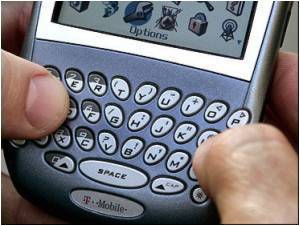In terms of honesty, video chats score higher than texting as compared to any other form of communication, a new study has revealed.

According to the Los Angeles Times, one student had to be a stockbroker while the other one was a buyer.
The stockbroker was told that the stock would lose 50 percent of its in a week, and was also given a financial incentive to unload as much of the falling stock as possible to the buyer.
The researchers found that the sellers were more likely to be dishonest if they pulled off the deal by text message.
The dishonesty generally revolved around lying about the quality of the stock or simply not mentioning how good or bad it was.
Surprisingly, the stockbrokers were most honest about the stock if the conversation occurred through video.
The researchers said that the dishonest behaviour was largely caused by the 'lean media' nature of texting.
But the big surprise for researchers came from the buyers' side.
When buyers were asked how angry they were that the stockbrokers had been dishonest, the research team found buyers were more enraged if they had been lied to via text than if they had been lied to face-to-face.
"What we speculated was going on is there is some instant rapport-building, and some quick trust that happens when you talk to someone face to face, and it acts as a buffer and an inoculation, almost like a vaccine, against negative reactions," the Daily Mail quoted Ronald Cenfetelli, a professor at the Sauder School of Business at the University of British Columbia, who co-authored the paper, said.
"People are still angry or upset if they are lied to face to face, but when they are lied to in the leaner communications, they are more angry," he added.
The study has been published in the Journal of Business Ethics.
Source-ANI
 MEDINDIA
MEDINDIA




 Email
Email




